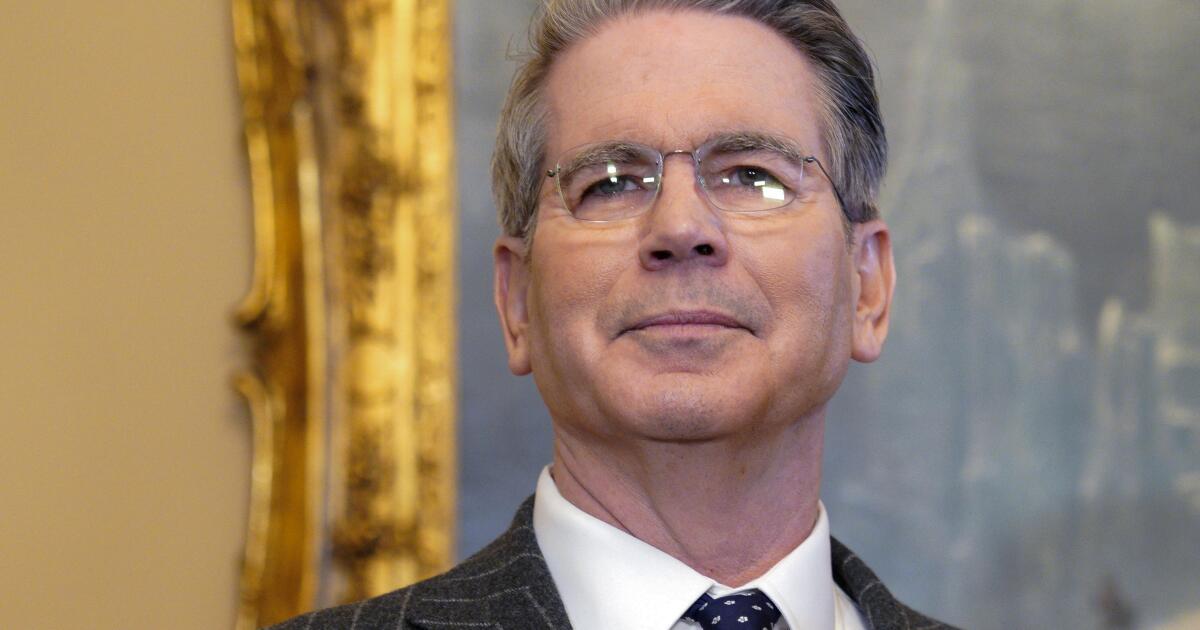Clinton Pardons McDougal and Hearst but Not Milken
WASHINGTON — In his final hours as president, Bill Clinton on Saturday granted pardons to 140 Americans, including Patricia Hearst, an heiress kidnapped in the 1970s; his half-brother, Roger, who was convicted on drug charges; and Susan McDougal, who spent 18 months in jail rather than testify about the Clintons’ role in the Whitewater scandal.
Former Housing Secretary Henry G. Cisneros, ex-CIA Director John M. Deutch and former Arizona Gov. Fife Symington also received last-minute pardons.
But Clinton chose not to pardon financier Michael Milken, who pleaded guilty in 1990 to six counts of securities fraud. Milken’s request for a pardon had been championed by influential business and political figures.
In the end, strong opposition from law enforcement and the investment community–including the Securities and Exchange Commission and the U.S. attorney in New York–convinced the president that Milken did not deserve a pardon, according to a former administration official who asked not to be identified.
“A lot of influential people on Wall Street weighed in against the pardon,” the official said. “The press obsession with Milken and whether he was going to get a pardon was out of proportion.”
Milken, who heard of the decision early Saturday at his Encino home, is optimistic that one day he will be pardoned, said his spokesman, Geoffrey Moore.
“This man is never bitter,” Moore said. “He’s been through a lot worse than this. I’m sure he would have preferred another decision, but he never looks back.”
Ari Swiller, a spokesman for Ron Burkle, the Los Angeles grocery magnate who spearheaded Milken’s pardon efforts, would not comment on whether a campaign for a Milken pardon will continue. Burkle, who heads the Yucaipa Management Co., is a close friend of Clinton and one of his early campaign contributors.
“We don’t want to judge the process,” Burkle said. “On the good side, this has provided the opportunity for more people to know of Mike’s philanthropic efforts.”
The White House had been expected to announce its final pardons Friday, but Clinton was preoccupied with a more pressing issue–a deal with Whitewater independent counsel Robert W. Ray in which he acknowledged making false statements about his affair with Monica S. Lewinsky. In return, Ray promised not to prosecute Clinton.
During his eight-year term, Clinton pardoned 395 people, about the same as President Reagan, and commuted the sentences of 61 prisoners. Former President Bush pardoned 74 people during his four-year term.
McDougal learned of her pardon while watching the inauguration on television with friends in Arkansas.
“I have carried this burden with me since I was convicted,” said McDougal, who has repeatedly proclaimed her innocence. “I never realized how heavy the burden was until today. Now all of that has gone away.”
Los Angeles attorney Mark Geragos, who defended McDougal, said her pardon was one of a handful that Clinton wanted to sleep on before making a final decision Saturday morning.
“Susan is a very polarizing figure, and [Clinton] didn’t want to give the perception that a deal was cut,” Geragos said. “This is the final vindication for her.”
As part of the pardon, McDougal also avoids repayment of about $300,000 in court-ordered restitution plus interest, Geragos said.
Kenneth W. Starr, the former independent counsel who charged McDougal with civil contempt, did not return phone calls Saturday.
The pardon for Hearst ends a saga that began in the 1970s, when the newspaper heiress was kidnapped by revolutionaries of the so-called Symbionese Liberation Army and then joined them as “Tania.” She served a prison term for bank robbery.
Former President Carter, who commuted Hearst’s prison sentence, and his wife, Rosalynn, were strong advocates of a pardon for her.
“The Carters weighed in, and the president took their advice seriously,” the former Clinton official said. “She’s reformed and deserves a chance to vote.”
But Sarah Jane Olson, a former SLA member who was captured in 1999 after being a fugitive for nearly 25 years, said Saturday that Hearst fabricated much of her account of the kidnapping.
“Just because Clinton pardoned Patty Hearst does not mean that her story is true,” said Olson, who is scheduled to face trial this spring for allegedly planting bombs under two police cars. “Money, access to power and friends in high places have once again–as with her earlier commutation–influenced presidential prerogative in favor of Patricia Hearst.” Hearst could not be reached for comment.
Symington, a Republican, was convicted in 1997 of bank and wire fraud stemming from his days as a Phoenix real estate developer. The conviction was later thrown out when an appeals court ruled that one of the jurors had been improperly dismissed.
Federal prosecutors in Los Angeles had been attempting to restore criminal charges against Symington.
“Obviously, that’s not going to happen now,” said Thom Mrozak, spokesman for the U.S. attorney in Los Angeles. He said prosecutors had no comment on the pardon.
Cisneros resigned in 1996 amid controversy over his statements to the FBI about paying “hush money” to a former mistress. Formerly head of Univision, he now is chairman of American CityVista, an affordable housing venture at Kaufman & Broad Home Corp..
Former CIA Director Deutch, who was accused of transferring classified information to his home computer, had been discussing a possible plea deal to settle his case.
Roger Clinton pleaded guilty in 1985 to conspiring to sell cocaine.
In addition to Milken, Clinton declined to grant pardons to Jonathan Jay Pollard, convicted of spying for Israel; Native American activist Leonard Peltier, convicted of killing two FBI agents in 1975; and Webster L. Hubbell, a former law partner of Hillary Rodham Clinton who was convicted in a Whitewater-related trial. He had not requested a pardon.
The ability to grant pardons is a uniquely presidential power designated by the Constitution.
The purpose of a pardon is to grant official forgiveness of a crime. It does not expunge a person’s criminal record, but it can have the effect, depending on the state in which the person lives, of restoring some of the civil rights that a criminal conviction takes away, such as the right to vote, to run for office and to carry a firearm.
Clinton also acted Saturday to commute the prison sentences of 36 Americans. Unlike a pardon, a commutation does not imply forgiveness of the underlying offense but merely shortens the punishment.
Among those granted clemency were Peter MacDonald Sr., former leader of the Navajo Nation, who was imprisoned for his role in a 1989 riot that resulted in two deaths; and former Chicago-area Democratic Rep. Mel Reynolds, sent to prison for having sex with an underage campaign worker and for bank fraud.
*
Rosenblatt reported from Washington and Vrana from Los Angeles. Times staff writers Edmund Sanders and Alissa J. Rubin in Washington and Ann O’Neill and Richard Winton in Los Angeles contributing to this story.

